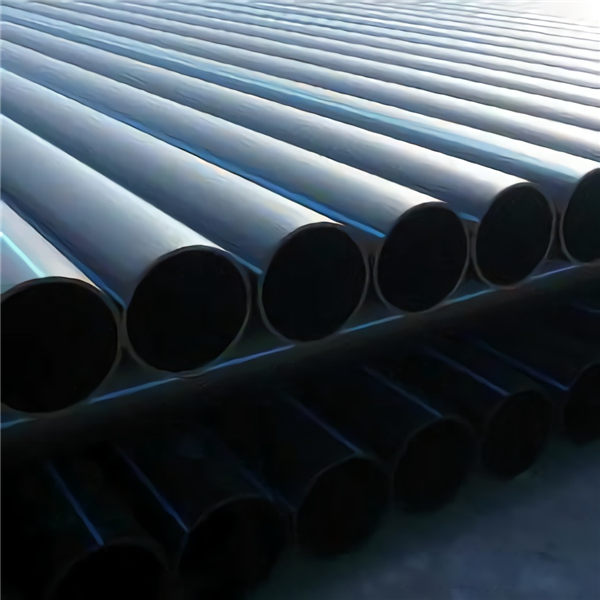Jul . 26, 2024 13:31 Back to list
Innovative Solutions for Efficient Irrigation Using HDPE Sprinkler Pipe Technology for Agriculture and Landscaping
The Benefits and Applications of HDPE Sprinkler Pipe Systems
High-Density Polyethylene (HDPE) sprinkler pipe systems have emerged as a preferred choice for agricultural irrigation and landscape management due to their unique properties and advantages. In this article, we explore what HDPE is, its benefits, and its applications in various sectors.
What is HDPE?
HDPE, or High-Density Polyethylene, is a versatile plastic polymer made from petroleum. Renowned for its high strength-to-density ratio, HDPE boasts an impressive ability to withstand stress and resist environmental factors like UV radiation and humidity. This material is known for its flexibility, durability, and chemical resistance, making it an ideal choice for various piping applications, particularly in sprinkler systems.
Benefits of HDPE Sprinkler Pipes
1. Durability HDPE pipes are known for their exceptional longevity. They can endure harsh weather conditions and resist cracking and rusting, which are common issues with traditional metal pipes. This durability translates to less frequent replacements, leading to cost savings over time.
2. Lightweight Compared to metal pipes, HDPE is significantly lighter, making it easier to handle and install. This property not only reduces transportation costs but also minimizes the risk of injury during installation.
3. Flexibility One of the standout features of HDPE piping is its flexibility. This characteristic allows for easier installation over rough terrain without the need for numerous fittings. Furthermore, it can adapt to ground shifts, reducing the risk of damage over time.
4. Chemical Resistance HDPE is resistant to a variety of chemicals, making it suitable for transporting water that may cause corrosion in other types of pipes. This feature is particularly beneficial in agricultural settings where fertilizers and other chemicals are prevalent.
5. Cost-Effectiveness Although the initial investment in HDPE pipes may be higher than traditional materials, their long lifespan and reduced maintenance costs yield substantial savings in the long run. Farmers and landowners can benefit from lower operational costs and improved water efficiency.
hdpe sprinkler pipe

6. Environmental Impact HDPE is fully recyclable, contributing to sustainability efforts in the agricultural and landscaping sectors. By opting for HDPE, landowners can reduce their carbon footprint and participate in responsible environmental stewardship.
Applications of HDPE Sprinkler Pipes
HDPE sprinkler systems find extensive use in various applications, including
- Agricultural Irrigation Farmers utilize HDPE pipes to deliver water efficiently to crops. The flexibility of these pipes makes them suitable for both above-ground and underground installations, ensuring that irrigation systems can adapt to different farming practices.
- Landscape Irrigation Landscape architects and gardeners often opt for HDPE sprinkler systems due to their reliability and adaptability. These systems can easily cover expansive areas, providing uniform water distribution that is crucial for healthy plant growth.
- Construction and Civil Engineering HDPE pipes are also employed in construction projects for water management and drainage systems. Their ability to handle moisture without degrading makes them a suitable option for preventing water-related issues on construction sites.
- Municipal Applications Many municipalities are turning to HDPE piping for water distribution networks, sewage systems, and stormwater management. The longevity and reliability of HDPE make it an attractive choice for public infrastructure.
Conclusion
HDPE sprinkler pipe systems represent a significant advancement in irrigation technology. Their durability, flexibility, and cost-effectiveness make them an ideal solution for agricultural and landscaping needs. As awareness of sustainable practices grows, the demand for HDPE pipes will likely continue to rise, offering a reliable resource for efficient water management across various sectors. Embracing HDPE technology not only enhances the efficiency of irrigation systems but also contributes to a more sustainable future in water resource management.
-
High-Quality PPR Pipes and Fittings Durable ERA PPR & PVC PPR Solutions
NewsJul.08,2025
-
Black HDPE Cutting Board - Durable, Non-Porous & Food Safe HDPE Plastic Cutting Board
NewsJul.08,2025
-
High-Quality CPVC Panel Durable HDPE & PVC Panels Supplier
NewsJul.08,2025
-
Double PE Welding Rod Supplier - High Strength, Durable & Versatile Welding Solutions
NewsJul.07,2025
-
High-Quality PVC-O Pipe Supplier Durable 75mm PVC Pipe & Connections Leading PVC Pipe Company
NewsJul.07,2025
-
HDPE Drainage Pipe Supplier – Durable & Corrosion-Resistant Solutions
NewsJul.06,2025

